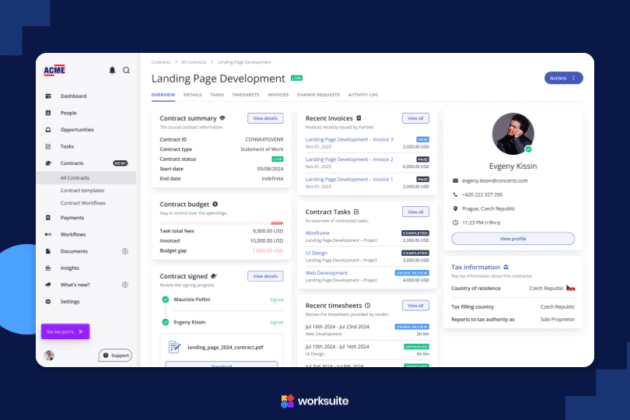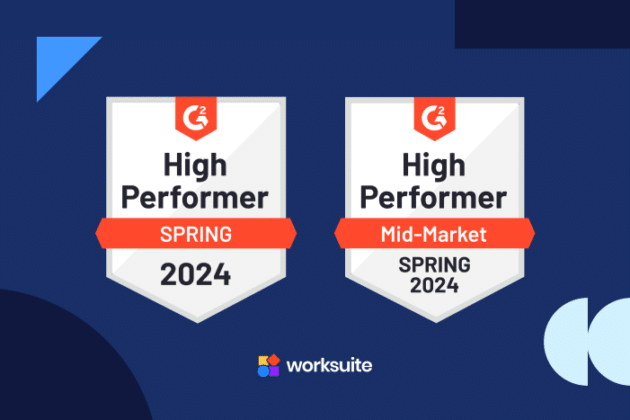
How to Manage Contractors (the Right Way) in 2024 and Beyond


Hiring independent contractors is one thing—learning how to manage contractors effectively is something entirely different. You have everything from onboarding and project management to timely payments and freelancer retention.
Oh, and remaining compliant with a maze of international workforce laws, too.
Without the right tools and know-how, managing independent contractors is definitely not easy. Fortunately, we can help you with both the platform (contractor management is what we do, after all) and the knowledge necessary to get the job(s) done.
Managing your independent contractors is more than a logistical challenge, though—it’s an opportunity to harness creativity, drive efficiency, and open doors to exceptional global talent.
Whether you’re a seasoned pro at managing a diverse team of freelancers or just dipping your toes into the contractor pool, this article provides all the resources you need to get it right from the start. We’ll dive into all the nitty-gritty aspects of managing contractors (the right way) now and in the future.
Contractor Management Legal Considerations and Compliance
The line separating contractors from full-time employees can sometimes be razor-thin. The main distinction lies in the degree of control and independence: while employees often work under the direct supervision of their employer, contractors operate independently, managing how and when they perform their tasks.
This difference affects daily operations, tax responsibilities, benefits, and labor rights. Misclassification can lead to significant legal and financial repercussions, making it a non-negotiable priority for contractor management.
And it’s not just about understanding your own workforce laws. As you grow your team and expand globally, you’ll need to be familiar with international laws and regulations—and these change for every country.
This includes creating comprehensive contracts that detail the scope of work, deadlines, payment terms, and confidentiality agreements, ensuring contractors are tailored to the legal requirements of the contractor’s country. Tax obligations also vary widely, with some countries requiring businesses to withhold taxes for contractors, while in others, contractors are responsible for their tax submissions.
Local labor laws may also impose specific obligations on businesses, such as contributions to social security or adherence to minimum wage laws (yes, even for contractors). Understanding these nuances is critical to maintaining compliance and avoiding penalties, highlighting the need for legal expertise and specialized software solutions that can navigate these complexities.
Master Independent Contractor Onboarding
Onboarding is the first step and sets the tone for the relationship, establishes clear expectations, and paves the way for effective and efficient project execution. This process isn’t just about administrative tasks—it’s about creating a welcoming and inclusive environment that values the contractor’s contributions.
Want to make sure you don’t miss anything? Check out our Complete Contractor Onboarding Checklist. TLDR? Here’s what you need to know:
- Paperwork: First, start with compliance checks and contractual documents (like NDAs, ICAs, SOWs). This mitigates risk and aligns both parties legally and professionally. Collect and securely store the contractors’ information—such as bank and tax details—to streamline payment later and make tax compliance a breeze.
- Onboarding: Introduce your contractor to relevant team members, grant them appropriate system and application access, and set a clear framework for collaboration. Add them to your project management tools and set up regular feedback loops to integrate them quickly.
- Clarity: Provide a clear list of tasks and projects for your contractor to work on, including any necessary deadlines and priority levels. Use a contractor management platform to automate and streamline the payment process to ensure timely, accurate payments.
How to Manage Contractors Remotely
Managing contractors remotely isn’t always intuitive. It’s a new skill, and it takes the right blend of tools and communicative strategies to foster a cohesive and productive team in a distributed environment.
Here’s how you can manage contractors in a remote setting better:
- Clear, Consistent Communication: Successful contractor management starts with communication. Establish regular check-ins through video calls or messaging apps to discuss project updates, address concerns, and maintain a personal connection. This routine helps prevent misunderstandings and keeps contractors aligned with the team’s goals.
- Central Platform: A central platform for accessing project briefs, team members, messages, documents, and payments reduces confusion and messes to help your contractors focus on quality work instead of logistics.
- Robust Project Management: Get your contractors and managers on the same page with a quality project and task management tool that lets them assign tasks, view real-time statuses, check deadlines, and work efficiently with dependencies.
- Regular Team Meetings: Work with independent contractors to schedule periodic virtual meetings that bring together your entire team (including contractors) to discuss project progress, brainstorm ideas, and share successes and challenges. This ensures that contractors are in sync with the company’s vision and don’t miss out on key bits of information.
- Strong Company Culture: Encourage social interactions among team members through virtual coffee breaks or informal catch-ups. Recognize and celebrate the achievements of your contractors publicly within your organization to make them feel valued and part of the team.
- Time Zone Sensitivity: When managing a globally distributed team, consider time zones and cultural differences. Schedule meetings at times that are reasonable for all team members, and be aware of cultural nuances that might affect communication styles or work ethics.
Nail Your Payment Processing
Payment processing is a huge part of contractor management that often doesn’t get the time and consideration it deserves. Ultimately, your contractors want to make money—it’s not selfish or unaligned with your goals, but it’s just the way it is.
You want deliverables. Contractors want to get paid.
And they want it to be easy and efficient. They don’t want late payments, and they don’t want to be bugging managers or payroll to get paid. They want it simple and streamlined.
Yet another challenge is that while employee payroll typically goes through HR and Accounts Payable, there is shared responsibility (and often disjointed processes) for paying contractors. Your freelancers may all use different invoicing tools and request different payment methods. It can easily become hours and days of administrative burden just to pay out your contingent workforce.
That’s where a robust payment processing solution comes in handy. For example, Worksuite Global Pay provides the following:
- Global Payouts: Approve, schedule, and pay contractors in 190+ countries with 120+ supported currencies.
- Payment Automation: Schedule your payments or pay in bulk with flexible options that remove all the tedious manual processes.
- Budget Insights: Learn about your payments and budget spending across freelancers, projects, and countries.
- Invoice Management: Capture, track, and manage all of your invoices from one centralized dashboard.
- Tax Form Automation: Automate everything from your 1099s and form delivery to your e-filing from one dashboard.
Focus on Building Long-Term Relationships
Fostering long-term relationships with contractors isn’t just about getting the job done. It’s about building a network of trusted, reliable talent that can grow with your business. It’s hard work to find freelancers you can trust, and once someone has gone through the hassle of hiring and onboarding, you don’t want to lose them.
Investing in these relationships can reduce freelance turnover, streamline project onboarding, and cultivate a culture of loyalty and mutual respect. Here are some ideas to help make it happen.
Regularly recognize and reward your freelancers (just like you would full-time employees). We all want to be noticed for our hard work and wins—your contractors are no different. You can do this through simple thank-you notes or public recognition during broader meetings.
Offer contractors the chance to take on new, challenging projects that allow them to grow their specialized skills and expertise. You might even include them in strategic discussions about projects they’ll work on rather than just handing them assignments. This inclusion makes them feel valued and provides a clearer understanding of business goals, allowing them to align their work more closely with your vision.
Streamline Contractor Management with Worksuite
Knowing how to manage contractors is an important step, but now it’s time to make it happen. That’s where we can help.
Worksuite provides a comprehensive, customizable solution to help you organize, manage, and pay your contractor network compliantly on a global scale.
- Comprehensive Contractor Management: Worksuite provides tools to source, onboard, manage, and pay contractors efficiently. We eliminate the need for spreadsheets and back-and-forth administrative work.
- Automated Onboarding: Our platform simplifies the onboarding process to guarantee compliance and make it easy for contractors to get started.
- Centralized Workforce Data: Keep all contractor information, project details, and communications in one place for easy access and management.
- Global Payments Processing: Worksuite’s payment system accommodates over 120 currencies to ensure timely and compliant payments to contractors worldwide.
- Cross-Team Visibility: Quickly surface your top talent, manage project goals and invoices easily. Maintain shared visibility into budget tracking and critical workforce metrics.
- Contractor Compliance: Hire and engage the best talent no matter where they’re based, in compliance with local labor laws and classification requirements.
Ready to transform how you manage your contingent workforce? Schedule a demo with our team to see how Worksuite can streamline your contractor management processes into a unified system.












